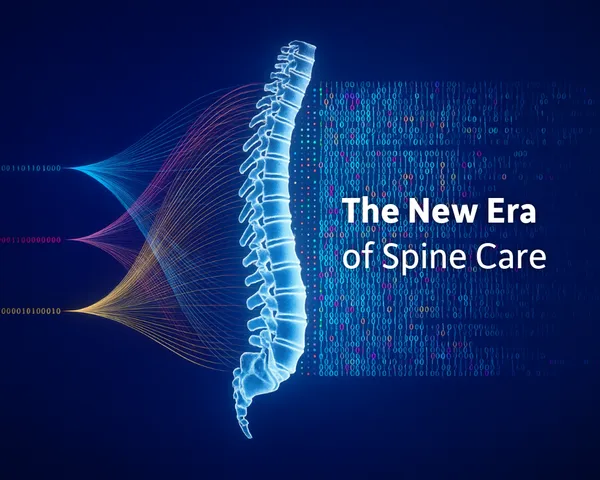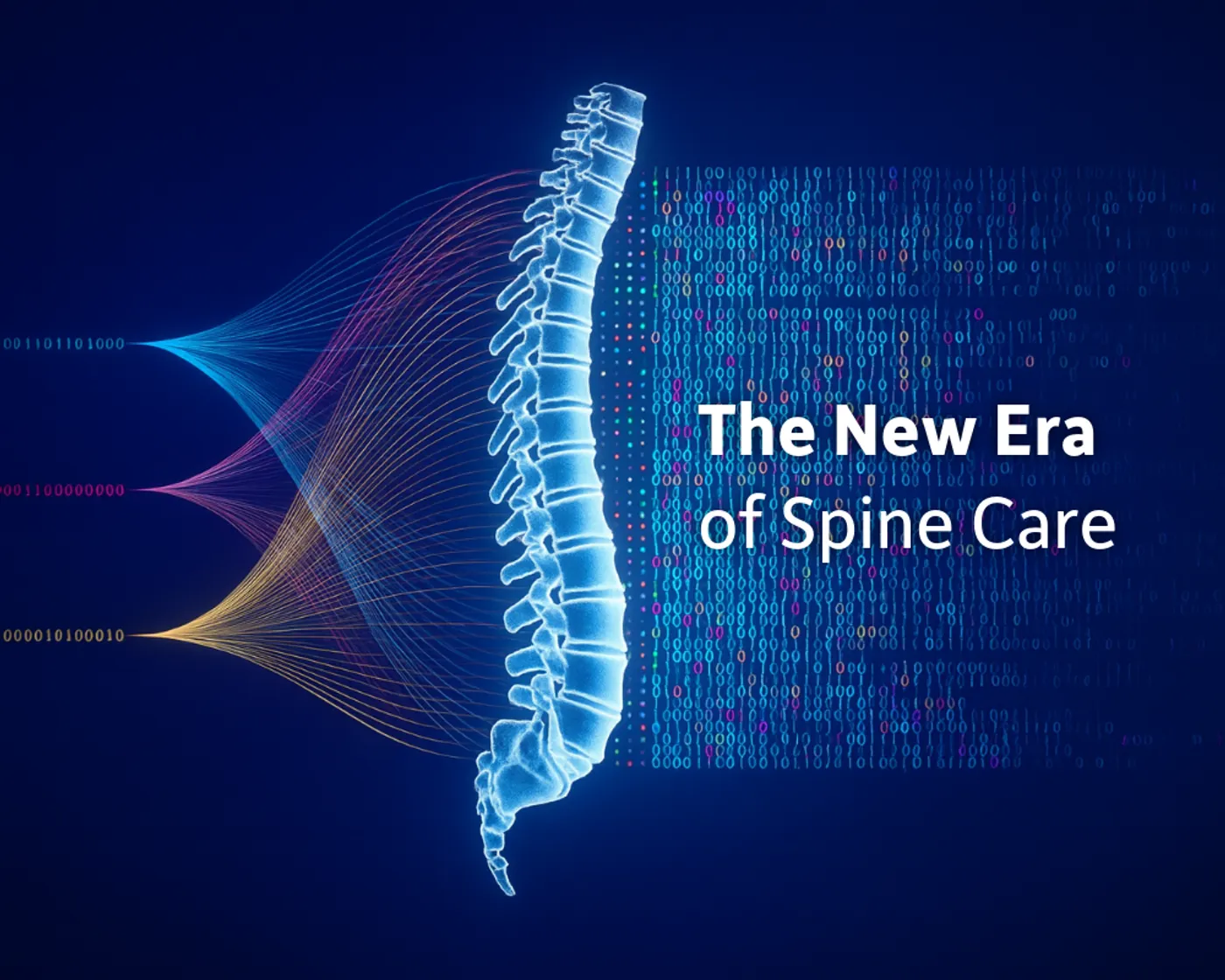

AI has moved from experimental promise to daily clinical practice in spine surgery. Across 2023–2025, published studies report clear, measurable improvements in diagnostic accuracy, surgical precision, and patient outcomes.
Highlights
- 98.3% robotic surgical precision: Leading platforms now achieve sub‑millimeter accuracy for pedicle screw placement.
- 74.9% mean AI diagnostic accuracy across clinical studies, with CNNs reaching 89.7% in cervical spondylosis diagnosis.
- 105+ clinical studies and a rapidly expanding market projected at $26.1B by 2031.
SCOLI’s Role
Under the co‑leadership of Dr. Nitin Agarwal and Dr. D. Kojo Hamilton, the Spine Computational Outcomes Learning Institute (SCOLI) unites neurosurgery, biomedical engineering, physiatry, and pain management to advance computational approaches that improve outcomes.
Mission: Design algorithms and neurosurgical tools that elevate the care of patients with spinal conditions through innovation and evidence‑based methods.
AI‑Related Research Focus Areas
- Intelligent metamaterial implants with designed properties for precise behavioral control
- Advanced neuroimaging (DBSI) to detect occult spinal cord injury invisible to conventional imaging
- Biomarker development (e.g., NCAM) for disease progression
- Algorithmic safety to prevent vertebral artery injury during surgery
AI Across the Surgical Workflow
Recent advances reshape the entire workflow—from diagnosis to planning to intraoperative guidance.
Diagnostic Breakthroughs
- FDA‑approved Avicenna.AI CINA‑CSpine (2024) for cervical spine fracture detection
- ResNet‑34 models for robust cervical spondylosis classification
- MRI analysis achieving ~94% AUC for cervical cord compression detection
- Automated segmentation with Spine‑Transformers for vertebral labeling across variable fields of view
Predictive Analytics
- Random Forests with ~87.6% accuracy for perioperative complication prediction
- Bayesian models with AUC 0.84–0.94 for mortality prediction
- Ambulation recovery prediction near 90% AUC
- Blood loss prediction in thoracolumbar burst fractures at 0.809 AUC
Clinical impact: ML‑based trajectory planning supports optimal pedicle screw placement with sub‑millimeter precision, while AI‑powered 3D modeling enables patient‑specific implant design.
Robotic Platforms: Precision Milestones
- Approximate capital costs around $850K for advanced systems (e.g., Mazor X Stealth Edition)
- Revision rates ~1% vs. 8–10% for freehand techniques
- 96.9% of screws rated in a good position in large cohort data
- Rapid clinical adoption, with many hospitals adding systems in 2024
Training connection: SCOLI’s AO Spine Fellowship provides advanced training in navigation, robotics, and AR‑assisted techniques.
Evidence of Patient Benefit
A 2024 systematic review of 105 studies (2020–2024) provides strong support for AI in spine surgery.
Excellent Performance (AUC > 0.8)
- Patient selection
- Cost prediction
- Discharge planning
- Stereotactic radiation efficacy (AUC ~0.828)
Technical Achievements
- SpineAssist robot: 98.3% vs. 92% navigation‑only accuracy
- German multicenter data: 96.9% of 2,067 screws acceptable
- Average placement error typically < 2 mm
- Clinical benefits include reduced blood loss and shorter length of stay
SCOLI innovation: Converging AI, robotics, and computational analysis enables personalized spine care with demonstrable outcome improvements.
Implementation Challenges
- $700K–$1.5M system costs and recurring disposables/service
- 20–30 cases for surgeon proficiency
- $10.93M average cost of a healthcare data breach underscores security needs
- 18–24 months typical ROI timeline
SCOLI addresses the skills gap through comprehensive training programs, including the AO Spine Fellowship and undergraduate internships.
What’s Next
Near‑term (2025–2027)
- Real‑time AI guidance integrated into routine workflows
- Expanded robotic indications beyond pedicle screws
- Comprehensive AR/VR integration
- AI‑driven, patient‑specific surgical planning
Long‑term Vision (2030+)
- Increasing automation for routine procedures
- Precision‑medicine integration
- Remote/tele‑surgical capabilities
- Earlier, pre‑symptomatic intervention guidance
Get Involved
SCOLI offers opportunities for students, fellows, and researchers to engage with this transformation:
- Undergraduate Internship Program (check back for future application windows)
- AO Spine Fellowship with focus on minimally invasive and robotic techniques
- Research Fellowship centered on AI in neurosurgery and computational outcomes
- Patient Support Group meeting quarterly on Thursdays at 6:30 p.m.
Contact: scoli@upmc.edu
The AI revolution in spine surgery is here. With robotic placement accuracy at 98.3%, mean AI diagnostic accuracy at 74.9%, and demonstrated cost savings exceeding $600,000 annually, the value proposition is clear. SCOLI is not merely observing this change—we are helping lead it through research in intelligent materials, advanced imaging, biomarker development, and algorithmic safety at the University of Pittsburgh.
Related posts

